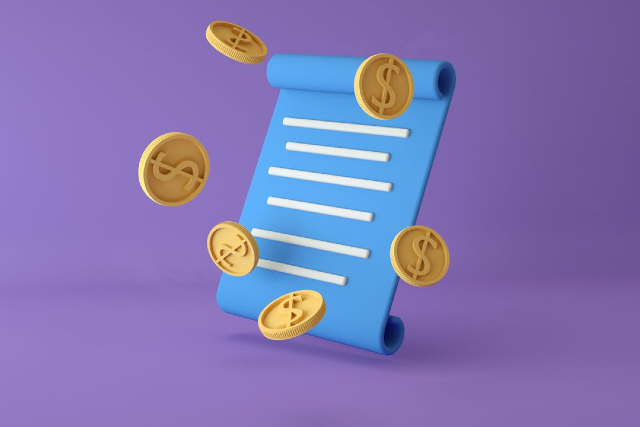
What is a Creditor Legally Required to Do if You Dispute a Debt?
When you are contacted by a debt collector about a debt that you believe is inaccurate or not yours, it is important to understand your rights and the legal obligations of creditors and debt collectors. The Fair Debt Collection Practices Act (FDCPA) is a federal law that protects consumers against abusive, unfair, and deceptive debt collection practices.
This article will explain what creditors must do when a debt is disputed, outline your rights as a consumer, and provide guidance on how to effectively dispute a debt and communicate with creditors and debt collectors.
The Fair Debt Collection Practices Act (FDCPA) and Debt Disputes
The Fair Debt Collection Practices Act (FDCPA) is a federal law designed to protect consumers from unfair, deceptive, or abusive practices by debt collectors. This law applies to personal, family, and household debts, including credit card debt, auto loans, and medical bills.
Under the FDCPA, debt collectors must provide written notice of the debt within five days of their initial contact with you. This notice, known as a debt validation letter, must include:
- The amount of the debt
- The name of the creditor
- A statement that you have 30 days to dispute the debt
If you choose to dispute the debt, you must do so in writing within 30 days of receiving the debt validation letter. Once the debt collector receives your written dispute, they must cease all collection activities until they provide verification of the debt.
Creditor Responsibilities When a Debt is Disputed
When you dispute a debt, creditors have certain legal obligations they must fulfill. First and foremost, they must investigate the disputed debt. This investigation involves reviewing account records and documents to verify the accuracy of the debt. If the debt was sold or assigned to a third-party collector, the creditor must contact the original creditor to obtain verification.
Once the investigation is complete, the creditor must provide you with verification of the debt. This verification should include:
- A copy of the original agreement or contract
- An itemized statement of what is owed
- The name and address of the original creditor
If the investigation reveals any errors on your credit report, the creditor must notify the credit bureaus and request that the inaccurate information be removed or updated.
Can a Debt Collector Still Collect a Debt After I’ve Disputed It?
Once you’ve disputed a debt in writing, the FDCPA requires the debt collector to stop all collection activities until they provide you with verification of the debt. This means they cannot call you, send letters, or take any legal action against you regarding the disputed debt until they have provided proof that the debt is valid and belongs to you.
However, it’s important to note that disputing a debt does not automatically make it go away.
Your Consumer Rights and Actions When Disputing a Debt
As a consumer, you have the right to dispute a debt that you believe is inaccurate, incomplete, or not yours. To exercise this right, you must send a written dispute letter to the debt collector within 30 days of receiving the debt validation notice. We recommend sending the letter via certified mail with return receipt requested to have proof of delivery. Be sure to keep copies of all correspondence for your records.
In your dispute letter, request that the creditor provide verification of the debt and any supporting documentation, such as the original creditor information and a detailed breakdown of the debt amount.
If you believe a creditor has violated the FDCPA during the debt dispute process, you can file complaints with regulatory agencies such as the Consumer Financial Protection Bureau (CFPB) or the Mississippi Attorney General’s Office. For complex cases or ongoing violations, it’s advisable to seek legal advice from a consumer law attorney specializing in debt collection issues.
Statute of Limitations and Debt Collection
It’s important to note that debts are subject to a statute of limitations, which is the time period during which a creditor can legally sue you for a debt. In Mississippi, the statute of limitations varies depending on the type of debt:
- Open accounts (credit cards): 3 years (Miss. Code Ann. § 15-1-29)
- Written contracts: 3 years (Miss. Code Ann. § 15-1-49)
- Promissory notes: 3 years (Miss. Code Ann. § 75-3-118)
- Promissory notes as to real estate: 6 years (Miss. Code Ann. sec. 75-3-118)
- Deficiency to real and personal property: 1 year (Miss. Code Ann. sec. 15-1-23)
Once the statute of limitations expires, creditors can still attempt to collect the debt, but they cannot sue you or threaten legal action. If a creditor attempts to collect a time-barred debt, you can use the expired statute of limitations as a defense in your dispute. In Mississippi, the debt under Mississippi Code Ann. sec 15-1-3(b) is extinguished and is not pursued within the statute of limitations.
Protecting Your Rights and Seeking Legal Guidance
Dealing with debt disputes can be stressful and overwhelming, but remember that you have rights under the FDCPA and Mississippi law. By understanding your rights and taking prompt action when a debt is disputed, you can protect your financial interests and work towards a resolution.
If you’re facing a debt dispute or experiencing creditor harassment, our team at Ware Law Firm is here to help. With extensive experience in consumer law and debt collection issues, we can provide the guidance and representation you need to navigate these challenging situations.
Contact us today to schedule a consultation and learn more about how we can assist you.




